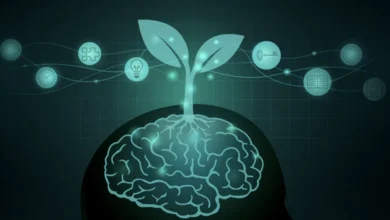How To Balance Life and School: Tips for College Students

Achieving a healthy work-life balance is a challenge for any adult, but for college students, the task can seem Herculean. Between the rigorous academic schedules, potentially working a part-time job, and maintaining a semblance of social life, the plate of the average college student is overflowing. Even so, learning to find equilibrium can lead not only to greater success academically but also to improved mental health and well-being. Below, we’ll explore practical tips and strategies to help any student navigate this tumultuous time with greater ease and effectiveness.
Effective Time Management Strategies for Academic Success
Time management is a cornerstone of achieving a balanced life as a college student. Creating a structured schedule that designates time for classwork, study sessions, employment, and leisure is essential. This involves being proactive in planning and recognizing the importance of adhering to set timetables, all while allowing for some flexibility to handle unexpected obstacles.
One key strategy is to prioritize tasks based on their urgency and importance. Students can benefit from methods such as the Eisenhower Box, which helps sort tasks into categories such as ‘do now’ or ‘schedule for later.’ Tackling the most challenging or important tasks when one’s energy is highest can help improve productivity and reduce procrastination.
Modern technology offers numerous tools to assist with time management. From calendar apps that send reminders about upcoming deadlines to productivity software that blocks distracting websites, students should take advantage of these resources. Technology can even help with paying your regular bills, such as your mobile bill. Learning Learning HOW TO PAY SIMPLE MOBILE BILL ONLINE can be a major time-saver for college students.
Leveraging Campus Resources for a Supportive Educational Experience
Colleges and universities are equipped with myriad resources designed to support students’ academic and personal success. Understanding and utilizing these resources can greatly enhance a student’s experience and provide much-needed support. From tutoring centers to mental health services, these facilities are in place to help students navigate their college journey.
Libraries, writing centers, and study groups offer spaces and assistance to bolster learning and comprehension. Additionally, career services can provide invaluable guidance for those seeking internships or employment opportunities relevant to their field of study. For non-traditional students who may be balancing family commitments or pursuing education later in life, flexible scheduling and childcare provisions can be a lifeline.
For those striving to advance their education while upholding various responsibilities, online learning can be an exceptional tool. Colleges like the University of Cincinnati offer options like Earn your ECE associate’s degree online with UC, making it more feasible for students to fit education into their busy lives.
The Role of Self-Care in Maintaining Personal Well-Being While Studying
The pursuit of academic excellence should never come at the expense of a student’s well-being. Self-care is an essential component of maintaining mental and physical health amidst the demands of college life. Sleep, nutrition, exercise, and mental health care are foundational aspects of a holistic self-care strategy.
Getting enough sleep is critical; it doesn’t just stave off fatigue but also plays a role in memory consolidation and learning. Concerning nutrition, fuelling the body with wholesome food can profoundly impact energy levels and cognitive function. Likewise, regular exercise can relieve stress, increase energy levels, and improve overall health.
Mental health is another aspect of self-care that cannot be overlooked. College students should be encouraged to seek professional help if they’re struggling with stress, anxiety, or depression. Meditation, mindfulness, and other stress-reducing activities can provide immense relief and improve the capacity to focus on academic tasks.
Overall, the quest for a balanced college experience demands intention and strategy. By managing time effectively, leveraging campus resources, and practicing self-care, students can thrive both academically and personally. The art of balance is a continuous process, one that evolves with the ebbs and flows of college life.



